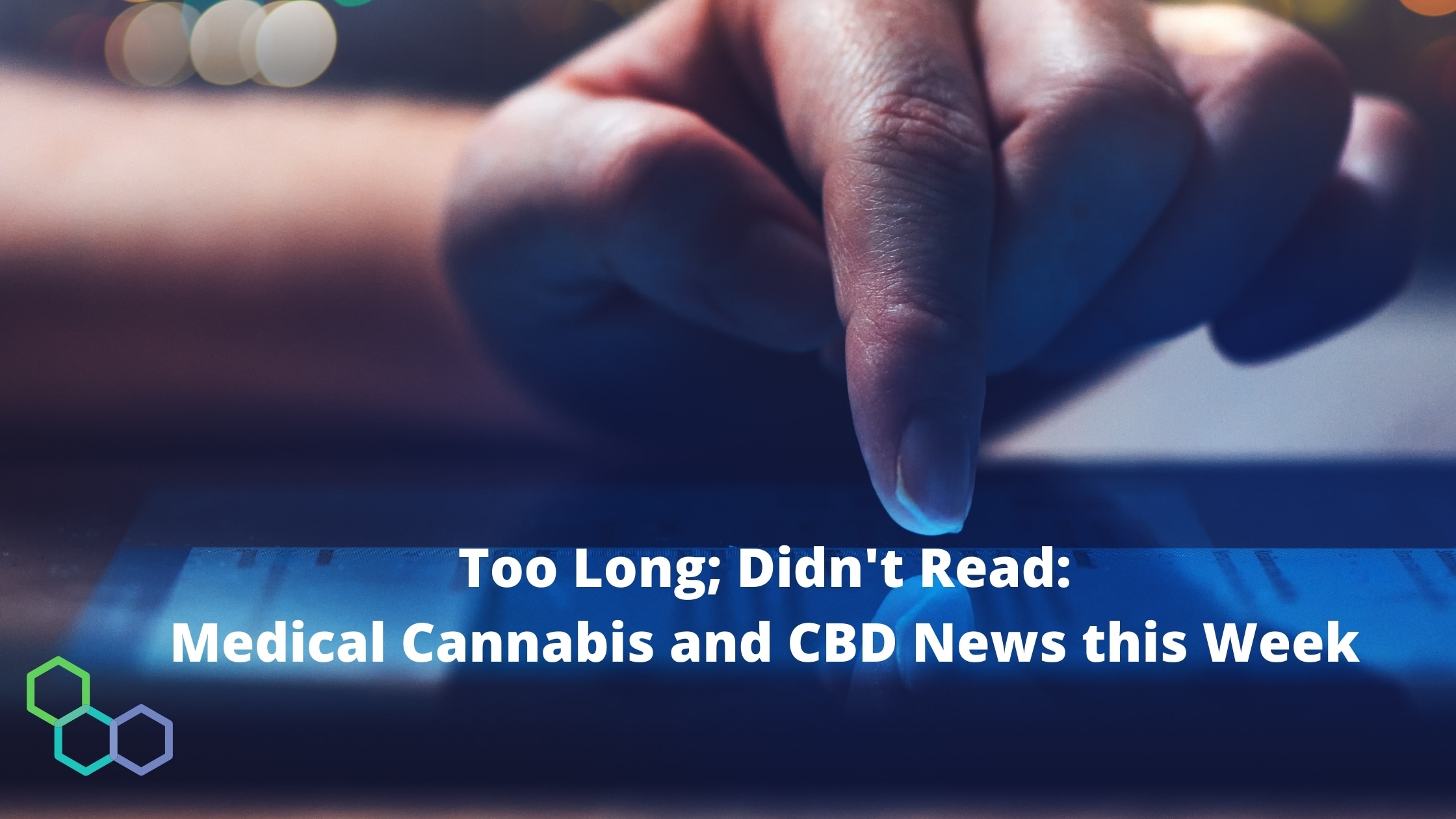Menu
TL;DR: Medical Cannabis and CBD News this Week (June 1, 2021)

We read all the latest news and science about medical cannabis and CBD so you don’t have to. You can click on any of the story headings to go to the full article.
Study: For Some Symptoms, Medical Marijuana With THC Is Better Than CBD [Forbes]
- Since federal law [in the US] allows CBD but still bans more than a minute amount of THC, in some circles, the dichotomy has devolved further to some version of “THC is for fun; CBD is for medicine.”
- But as a recent study highlighted, this understanding is wrong. THC is also medicinal—and in fact, cannabis users seeking prompt, effective relief from nausea want more THC, and less CBD.
Common questions about medical cannabis [Harvard Medical School]
- Is it safe? As with nearly everything else about cannabis, how safe or dangerous it is remains hotly debated. As a primary care doctor, I have to ask myself: is cannabis safer than the alternatives I would be prescribing? For example, if I’m treating a patient for chronic pain, is cannabis safer than opiates?
- How can I consume cannabis? Cannabis can be consumed in a variety of ways: by inhalation, with a tincture under the tongue, as an edible, or as a topical lotion. The advantages of consuming cannabis by inhalation, either by smoking or by vaporizing dried flower with a machine that heats it up, are rapid onset and easier titration of dosage. The disadvantages are that it can irritate the lungs, causing chronic bronchitis, and the therapeutic effect only lasts a few hours.
- Will I get high? In many cases, the answer to this is: only if you want to, unless the dosage you need is quite high. The doses needed for medical purposes are often significantly lower than what is used recreationally.
Dementia and cannabis: What to know [Vancouver Sun]
- While more research is needed, there are some promising results indicating that patients affected by Alzheimer’s and dementia may benefit from using medical cannabis.
- A 2019 study, published in the American Journal of Geriatric Psychiatry, found during a 14-week randomized double-blind crossover trial, nabilone, (a synthetic form of THC) had a positive effect on the patients, paving the way for more studies to occur.
- Where is dementia and THC research going? With studies like this one from Canada, the sky is proving to be the limit.
Your ultimate guide to CBD skincare [Finger Lakes 1]
- Cannabidiol comes with powerful anti-inflammatory properties. That’s why it’s is a popular treatment option for a myriad of skin conditions. Thus, you can count on CBD to treat skin inflammation, dryness, as well free radical damage.
- CBD can fight off those annoying skin acne. This is because CBD can significantly suppress the rate at which sebum is produced in the body. Still more, research suggests that CBD can effectively treat eczema as well as psoriasis.
- Ensure that the products you choose mention something like cannabidiol, hemp-based extract, and full-spectrum CBD oil.
Can CBD Help with Multiple Sclerosis? [Healthline]
- Some people with chronic illnesses, like multiple sclerosis (MS), use CBD to help reduce their symptoms. While the research is still inconclusive, CBD shows some promise as a helpful tool for alleviating chronic pain and discomfort related to various conditions.
- Some people use CBD to help manage chronic pain as an alternative to habit-forming drugs, such as opioids. Currently, there’s not enough research to verify CBD’s pain-relieving benefits.
- A 2018 review suggested that CBD is an effective pain management tool with few side effects.
What happens when you use THC and CBD together? Understanding the entourage effect [Greenway]
- THC and CBD work synergistically to protect the plants in which they are contained, and they create what is known as the entourage effect when humans take them together.
- The best balance of THC and CBD will be different for everyone, and it will vary within the individual depending on the desired effects, genetic propensity for interaction with cannabinoids, where they are in their hormonal cycles, what they ate, and even how much sleep they got.